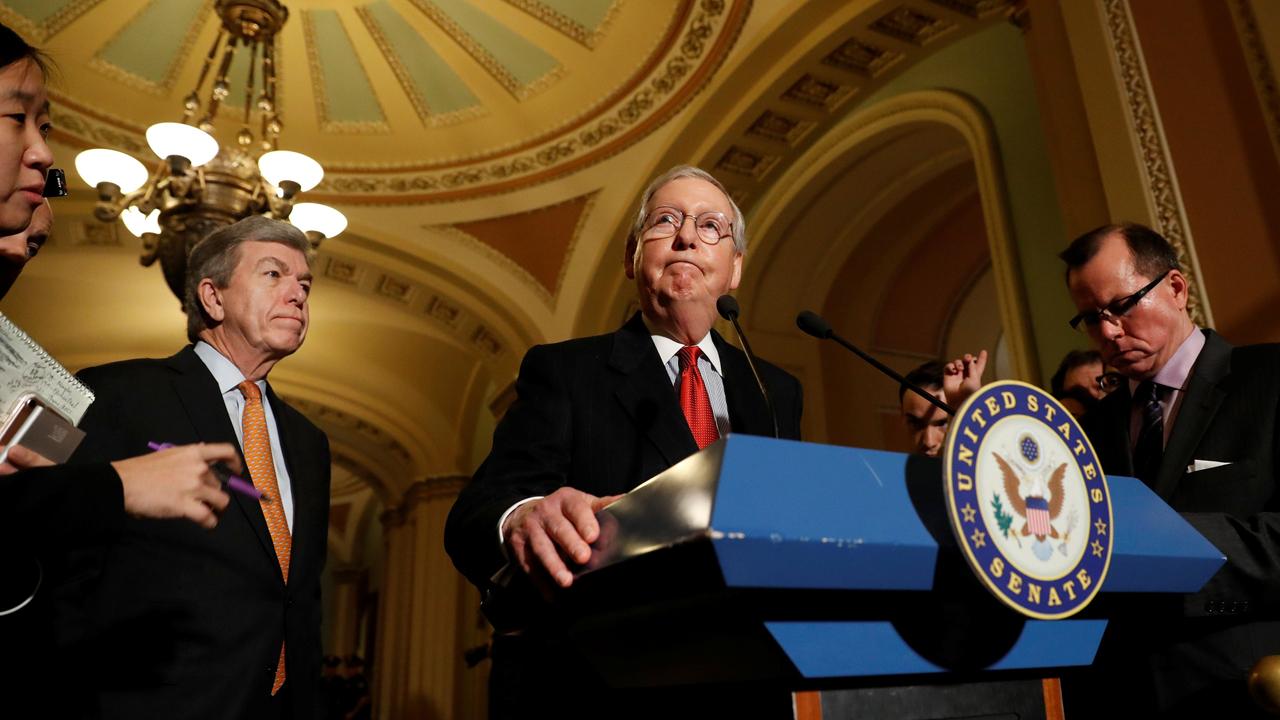This GOP senator won't support the tax cut bill right now. Here's why
President Donald Trump’s efforts to sway Republicans on Capitol Hill to support the Senate’s tax reform bill on Tuesday may have proved unfounded: Despite the president’s lobbying, Sen. Steven Daines said his decision to vote “no” won’t change unless the bill itself does.
The Montana Republican joined Sen. Ron Johnson (R-Wis.) as the second GOP Senator to voice his dissent to the bill, citing its somewhat-unfriendly rates for pass-through businesses. Congress now has 11 joint working days to pass the tax overhaul plan by 2018, a feat that is concerning some, given the razor-thin GOP majority in the Senate and the continued uncertainty of how some Republicans will vote.
“This is about ensuring that our pass-throughs, these main street businesses, get treated more fairly in this tax bill,” Daines told FOX Business’ Melissa Francis Tuesday. “We’re getting very, very close.”
Party-infighting didn’t stop the Senate Budget Committee, however, which voted 12-11 along party lines to approve the package of tax cuts. That cleared the way for the entire Senate to vote, which could happen as soon as Thursday, are a positive sign for Trump and Republican leadership who have been adamant that tax reform will be passed by Christmas.
The House already approved its own version of the tax reform legislation. If the Senate approves its version, the two bills would need to be reconciled before Trump could sign-off on any legislation.
At least six GOP senators have raised concerns about the Senate tax bill that, if passed, would slash the corporate tax rate from 35% to 20% after a one-year delay and would entirely eliminate the state and local tax deductions, a provision that’s popular among high-income states, namely New Jersey, California and New York.
Pass-through businesses, a business that pays taxes based on the owner’s income rather than the corporate tax rate, would pay a rate of 30% under the Senate bill. Those types of businesses account for more than 90% of businesses in the U.S and are currently subjected to a top marginal tax rate of 44.6%.
Daines said he’s spoken with Trump, Vice President Mike Pence and White House economic advisor Gary Cohn about modifying tax reform to include a better break for main street businesses. If those businesses -- which he noted provide a significant amount of economic growth within the private sector compared to large corporations -- “get treated more fairly” then the Senate will move closer to approving the legislation.
“We need to get a tax cut bill passed and on the president’s desk,” he said. “I’m confident that we’re going to get there.”




















